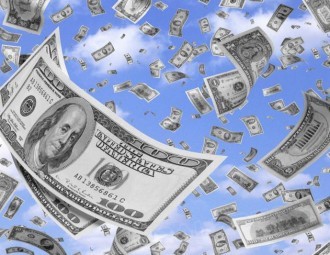Leanid Zaika: If Obama decides to play against Russia, IMF will give Belarus a loan

Kremlin will be investing in Belarus until Lukashenka makes a couple of serious mistakes.
Regular IMF mission is working on March 5-16 in Minsk. It is an open secret that Belarusan authorities are expecting to get a new loan from the IMF. However, as long ago as last week IMF representatives of stated that the foundation could start preparations to the new program on the assumption of serious reforms in the economy. However, reforms in Belarus are not even in the air.
Lukashenka’s visit to Moscow seems to have a sad end – Belarusan leader left for home without money.
In 2015 Belarus has to return about $4 billion of external debt, and return $1 billion Eurobonds before August.
Where should we get money? Leanid Zaika, the head of the analytical center “Strategia” (Strategy), talks about it in the interview with the EuroBelarus Information Service.
- What are the hopes of the official Minsk for IMF’s loan?
- Washington is the last to vote. If Obama decides to play against Russia, IMF will give Belarus a loan.
On March 3 Lukashenka visited Moscow, and it seems that Kremlin didn’t give anything to him. Lukashenka has already crossed several red lines in relations with Russia. First, he talked about the “Eastern Partnership” and possible participation in it, despite the fact that the “Eastern Partnership” is an anti-Kremlin project of the West. Secondly, Lukashenka voiced some impartial things for Kremlin re Crimea and Ukraine.
Now Belarus has stuck; it should pay about $4 billion of external debt, or about $300 million monthly. Kremlin decided to sustain a pause and see how Lukashenka rushes about from the West to the East.
Obama and the EU might allocate $1.5-$2 millions to Belarus for it to become more flexible and changeable. Washington is taking the final decision, and IMF is playing the role of a purse in this case.
In 2015 Russia is giving 23 million tons of oil to Belarus, and these tons might bring up to $10 billion extra income to the state treasury. Of course, the sum depends on the prices on oil at the world market.
- But anyway, the official Minsk should fulfill minimum of IMF’s terms to get a loan, shouldn’t it?
- One can promise whatever he or she wants; and Belarusan government has become skilled as anyone in it.
But it is useful for the IMF to give loans, as it always has what to get back. Belarus has a state property of $100 billion, and it can always bring pressure to any country and return the debts.
Reforms that were discussed at the negotiations between Belarusan authorities and the IMF are just nonsense. The IMF is a commercial organization that is earning money; international and Belarusan officials are together in their nomenclature bond and also earn money with that.
- On March 13 the government published a list of about 60 Belarusan enterprises that are to be privatized in 2015. Is it mere eyewash for the IMF of the state is really intended to privatize them?
- These lists appear each year and can be compared to the lists of university entrants: someone will enter the university, someone won’t, and a university might get closed… One shouldn’t be very attentive to that.
- How much can university get at the expense of privatization? Earlier the authorities planned to get $800-850 million from it, whereas last year privatization put $42 million in the state treasury.
- Now we are undergoing crisis. Money are invested into natural recourses production or new energy production, while there is little sense to buy, let’s say, Ivacevichi woodworking plant. The assets that come to Belarus are either adventurist or capital cover.
- Belarus’ external debt outstepped the line of $40 billion, and $4 billion have to be paid off in 2015. According to different assessments, the state will have to find $5-6 billion extra in order to prevent further decrease of the living standard among Belarusans. How will the state get out of this situation?
- In any country the population pays off the debts of the state: the state takes away money from the current income or takes away property. Now the salary is $400; it will decrease to $350, then to $200 – we can do nothing about it. Pensioners survive with only $107, but still go to polling stations and vote diligently.
- Anyway, the official Minsk won’t stop its attempts to borrow money elsewhere. Who can give it to the Belarusan authorities?
- It might be Kremlin. Kremlin was very interested that Belarus doesn’t go anywhere else as it lives in the Union State. Although this Union State seems “weird”: Russia introduced embargo for European goods, whereas Belarus that is a part of the Union State doesn’t. Moreover, Lukashenka goes to Moscow, meets with Putin and both of them pretend that nothing has happened.
However, Kremlin has already reduced the level of trust to Lukashenka and will be working more thoroughly with the Belarusan elites. Kremlin will be investing in Belarus until Lukashenka makes a couple of serious mistakes, as hungry and jobless Belarusans will stop loving Russia.
-
03.01
-
07.10
-
22.09
-
17.08
-
12.08
-
30.09








































